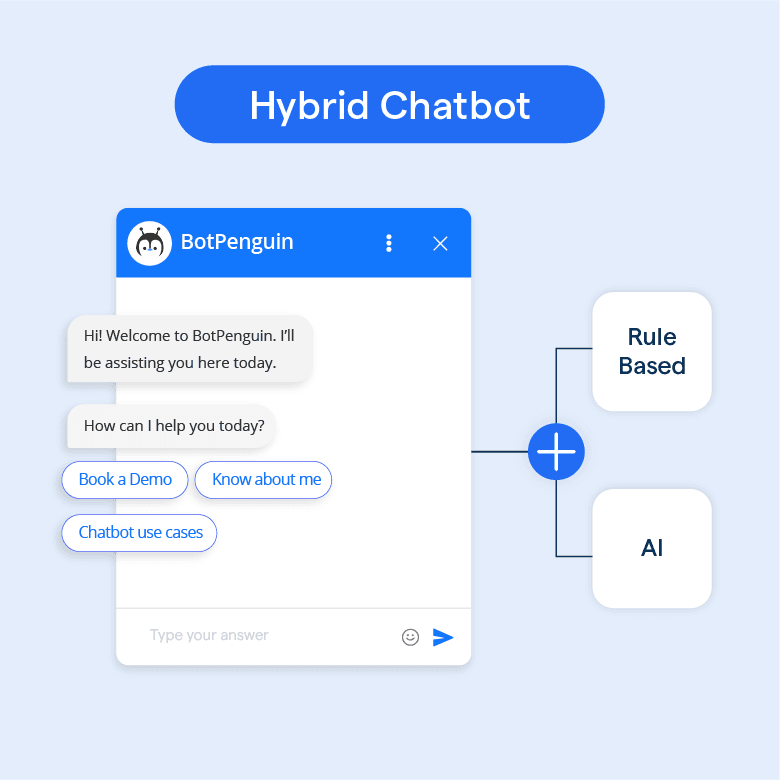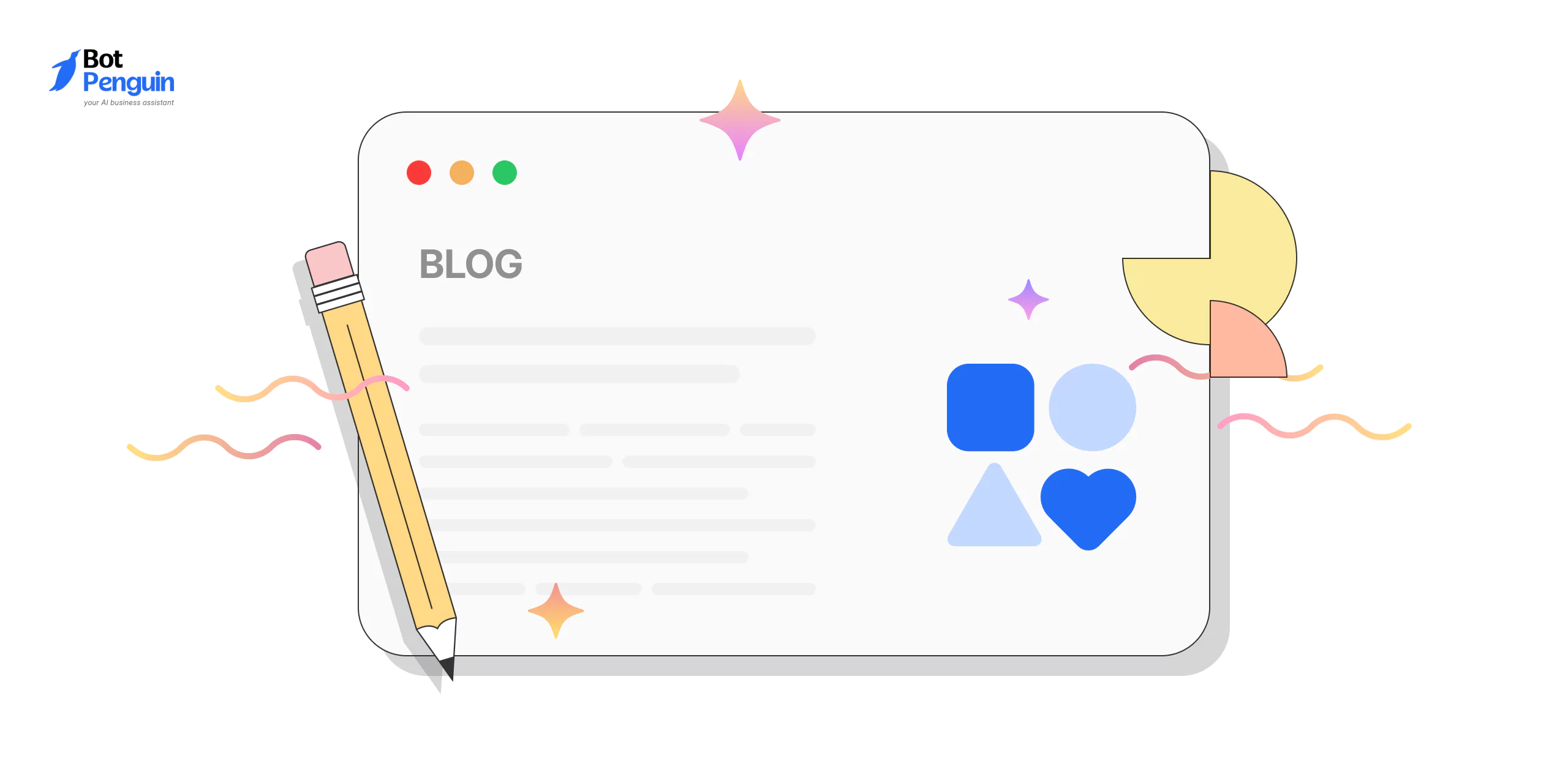What are Hybrid Chatbots?
Think of hybrid chatbots as the best of both worlds in the chatbot universe. They combine the efficiency of rule-based bots with the intelligence of AI-powered bots.
To break it down, a rule-based bot operates by specific pre-set commands. It's great for answering frequently asked questions or guiding users through a process - think of it as the reliable friend who's always got the answers to class homework.
Now, add the artificial intelligence bot into the mix. An AI bot learns from conversations and can handle more complex queries. Picture it as the friend who can think on their feet and adapt to different situations.
A hybrid chatbot is like putting these two friends on your customer support team. The rule-based bot can quickly answer common questions, while the AI bot jumps in when queries get a little complicated.
For example, a hybrid chatbot in an online store might guide a customer with sizing help (rule-based), then suggest personalized outfit options based on their purchase history (AI-powered). Pretty neat, right?
Types of Hybrid Chatbots
There are different types of Hybrid Chatbots that serve different purposes.
- Scripted Hybrid Chatbots: These chatbots are like the actors who memorize their lines word-for-word. They follow predetermined scripts to handle simple queries effectively and deliver knockout responses.
- Context-aware Hybrid Chatbots: These chatbots are like the world's best listeners. They have the power to understand and leverage the context of a conversation, providing more personalized and relevant responses to make users feel extra special!
Advantages of Hybrid Chatbots
In this section, we'll be discussing the notable advantages that hybrid chatbots bring to the table.
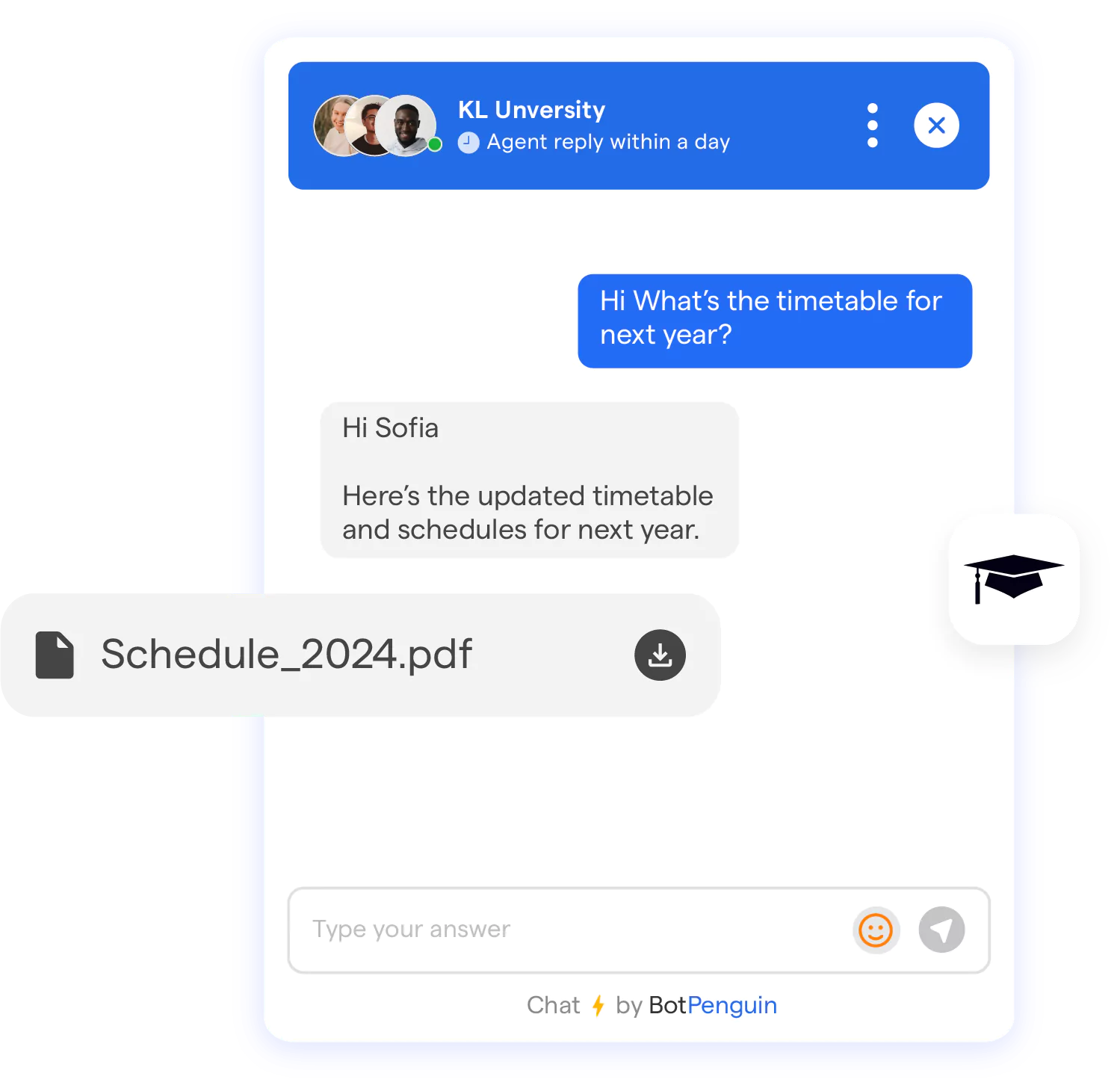
- Efficiency and Cost-Effectiveness: Hybrid chatbots, by taking care of routine and simple queries, free up human agents to address complex or sensitive issues.
This efficient delegation of tasks leads to cost savings and optimized resource utilization.
- Round-the-Clock Service: With hybrid chatbots available 24/7, customers receive immediate assistance at any time of the day, helping businesses maintain uninterrupted service and support.
- Human Touch when Needed: By facilitating a seamless switch to human agents when required, hybrid chatbots ensure personal and empathetic assistance during complex or sensitive interactions.
- Continuous Learning and Improvement: Hybrid chatbots learn from every interaction, including their handoffs to human agents. This continuous learning loop helps enhance their capabilities, resulting in improved customer interaction over time.
- Personalized Customer Experience: Hybrid chatbots can personalize conversations based on past interactions, user preferences, and behavior.
This offers a tailored customer experience, boosting satisfaction and loyalty.
When to Use Hybrid Chatbots?
In this section, we'll navigate the best scenarios where incorporating a hybrid chatbot into your business strategy would be beneficial.
Enhancing Customer Service
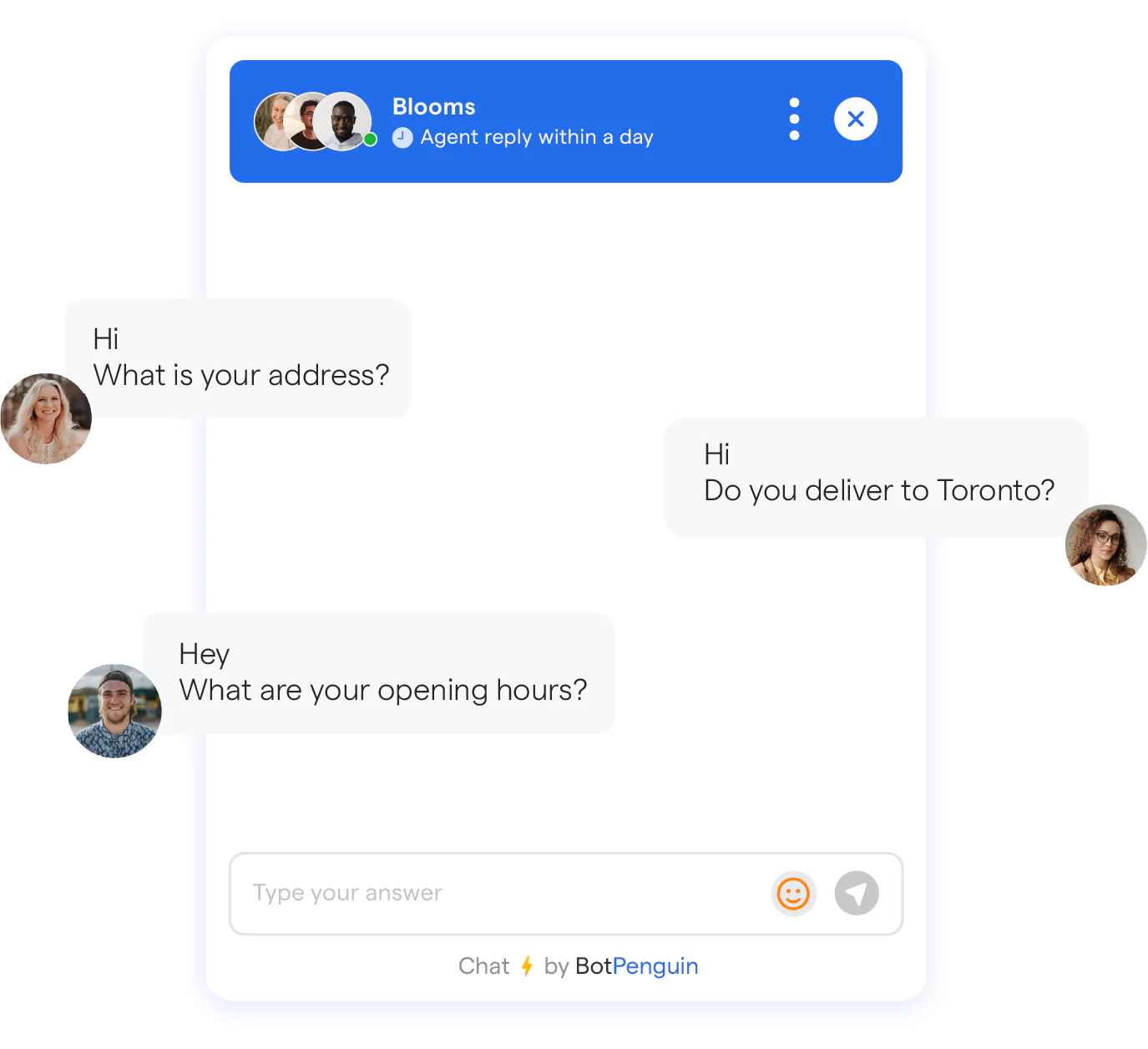
Hybrid chatbots shine in customer service, providing immediate responses to routine inquiries while intelligently addressing more complex questions – elevating your customer's experience all around.
Streamlining Onboarding Process
An onboarding process can be simplified using hybrid bots; they can guide new users through platform navigation and learn to solve any unexpected hiccups along the way.
Scaling Business Operations
When your business starts growing, hybrid chatbots are your go-to pals. They'll help you scale operations by handling the increasing influx of queries, allowing you to focus on strategic growth activities.
Targeting 24/7 Accessibility
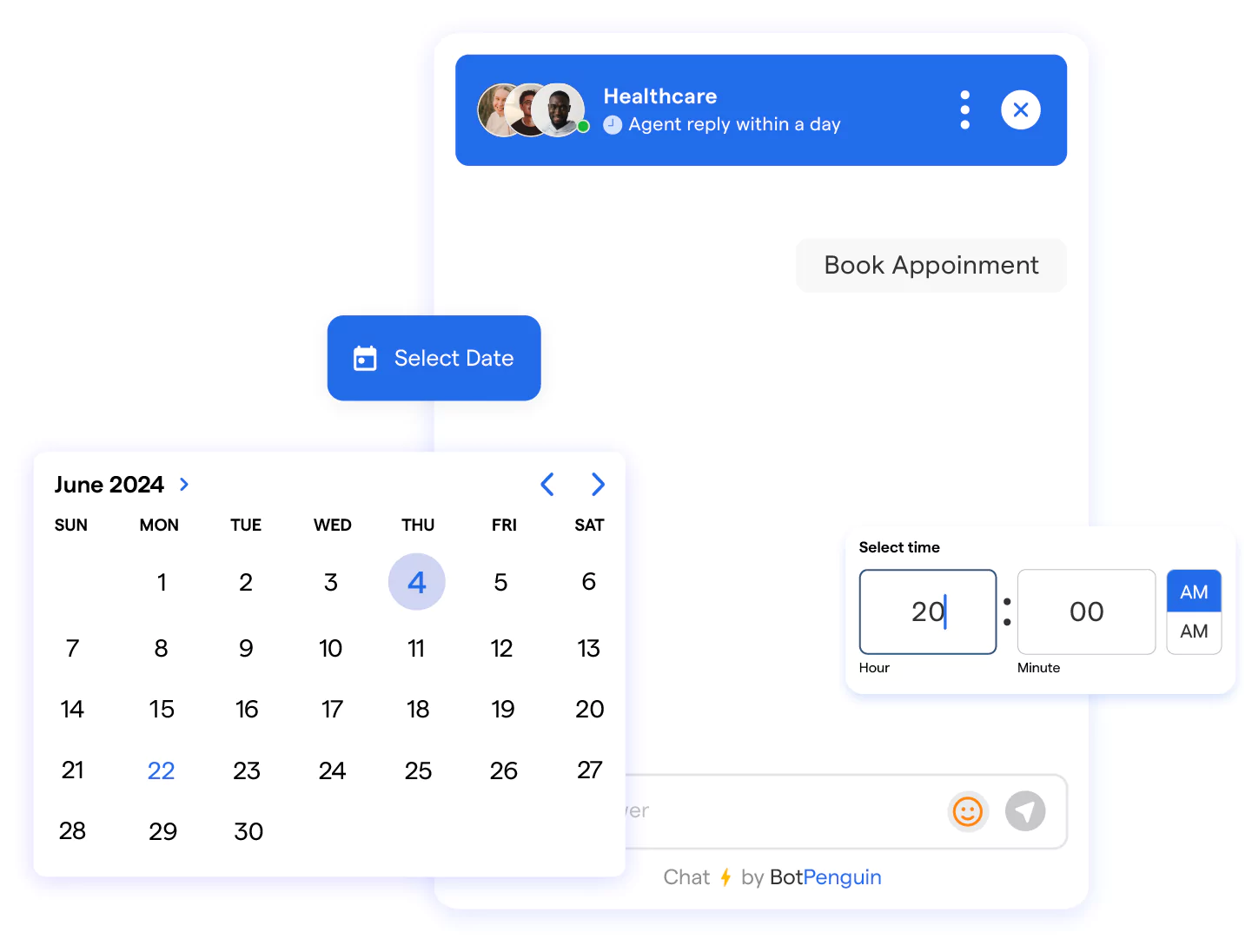
Craving round-the-clock customer service? Hybrid chatbots are tireless workers, available 24/7 to address customer queries, ensuring your business stays responsive beyond office hours.
Collecting and Analyzing Customer Data
Hybrid chatbots are not only interaction champs, they're data goldmines. They can collect and analyze user data, providing valuable insights to tweak marketing initiatives or refine customer-personas.
How to Implement Hybrid Chatbots?
Implementing Hybrid Chatbots might sound daunting, but with the right approach, it's a breeze. Here are some steps to guide you along the way:
Selection of Chatbot Platform
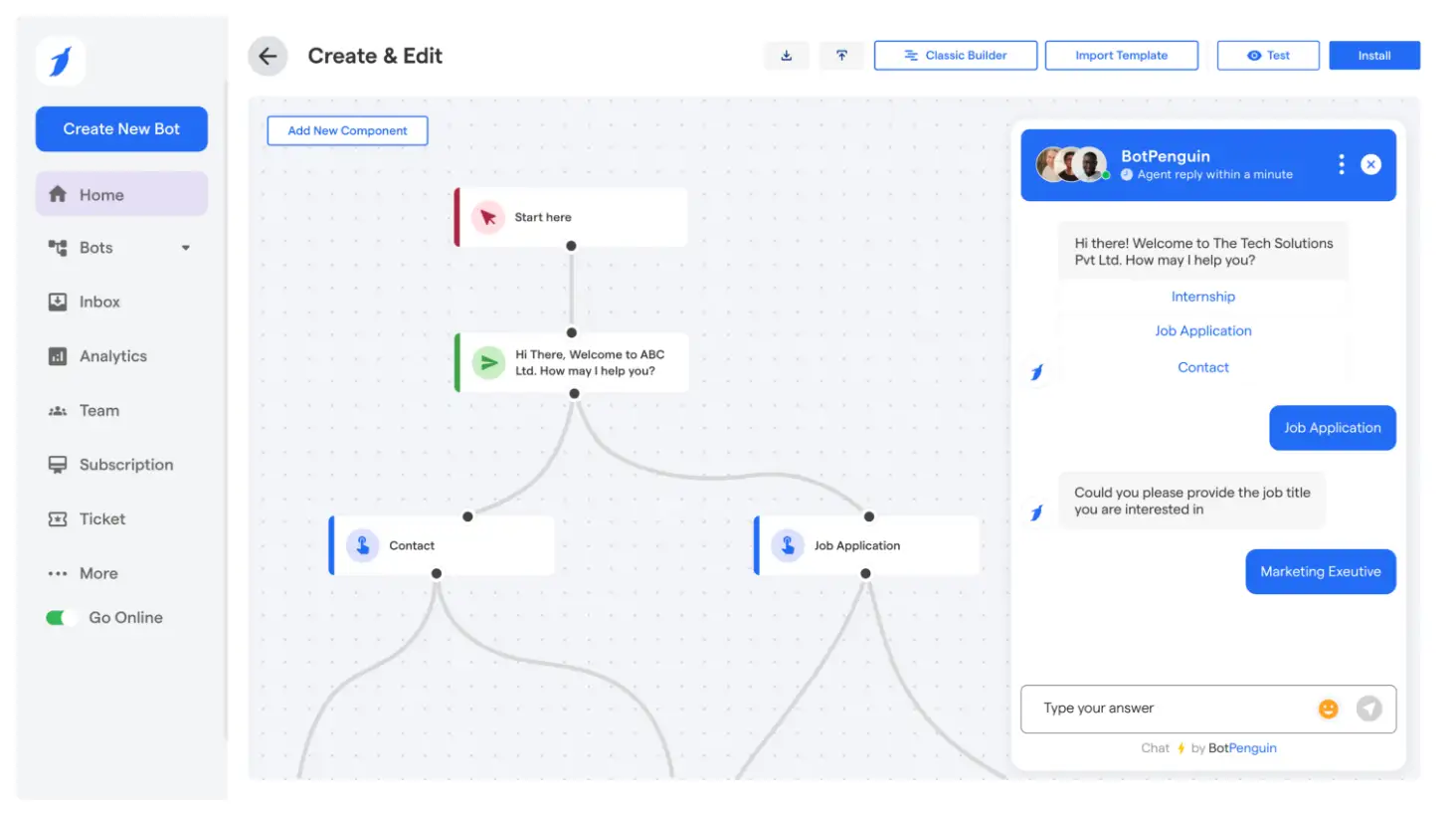
Plenty of platforms offer the capability to build hybrid chatbots, for example, Botpenguin.
Choosing the right platform depends on various factors like ease of use, scalability, compatibility with other tech infrastructure, and more.
Designing the Conversational Flow
Design the conversational flow considering both rules-based and AI-based interactions. Basic interactions like FAQs can be handled by the rule-based component.
More complex queries should trigger the AI-component that uses machine learning and natural language processing to generate responses.
Integration with Human Operators
Often, a hybrid chatbot involves integration with human operators, especially for handling complex interactions or sensitive issues.
So, provision should be made in the conversational flow for seamless transition of the conversation from the bot to a human operator when necessary.
Testing and Improvement
After implementing the chatbot, it’s crucial to thoroughly test its performance across a wide range of scenarios. This includes testing both rule-based and AI-based paths.
Regular monitoring and adjustments based on user feedback are also vital for ensuring the chatbot continues to provide valuable service to its users.
Implementing a hybrid chatbot involves a mix of smart technology choices, thoughtful design of conversational flows, seamless human operator integration, and a commitment to continual testing and improvement.
Best Practices for Hybrid Chatbots
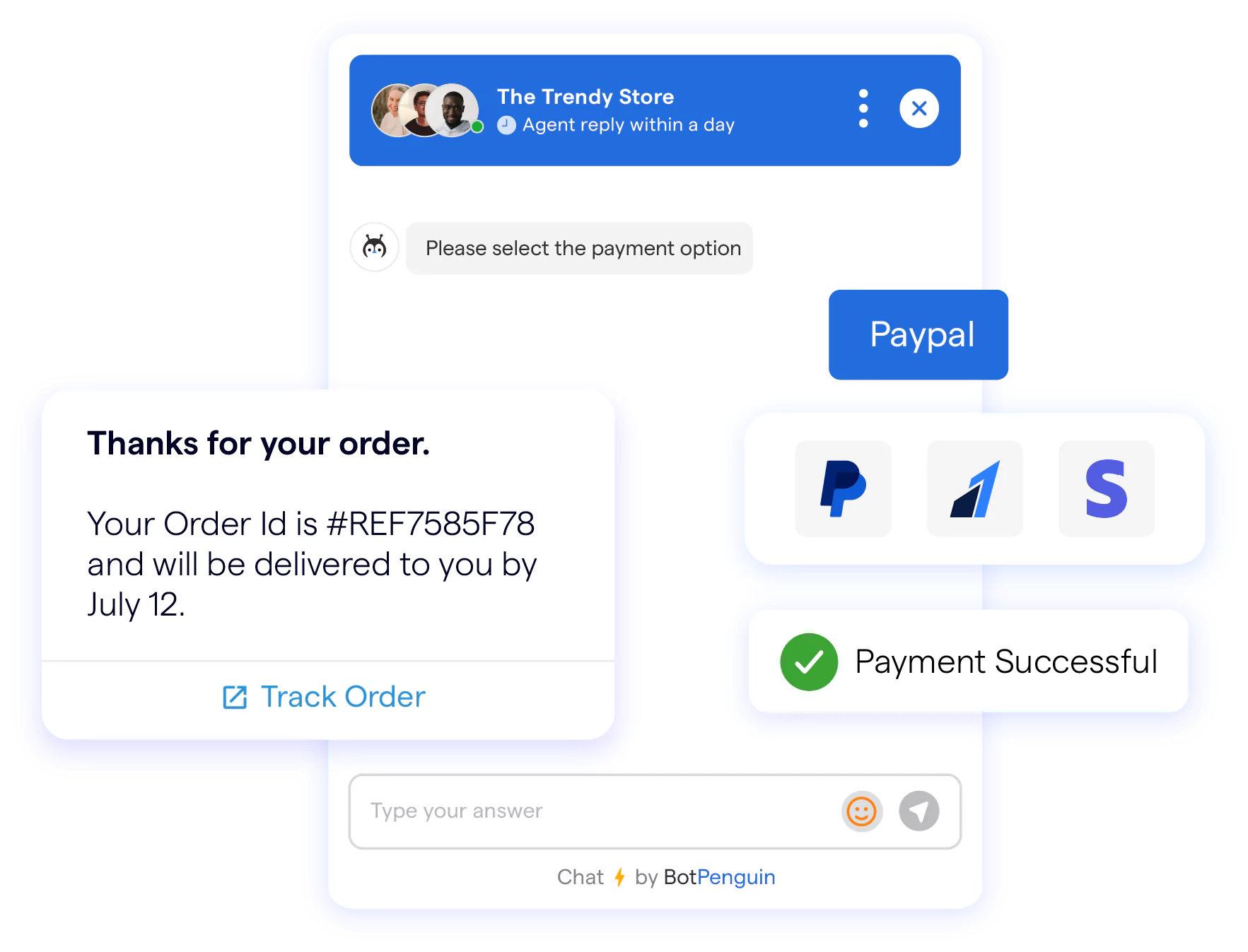
Setting up a hybrid chatbot involves the combination of AI-powered service and live human interaction. This blended approach can result in highly responsive, flexible, and empathetic customer interactions. Here are a few best practices:
- Define the Role Clearly: Determine what tasks your hybrid chatbot will handle. Routine queries can be managed by AI, while complex issues can be directed to human operators.
- Human Oversight: Despite advancements in AI, human supervision is necessary to ensure accuracy, appropriateness, and quality of service.
- Seamless Handoff: Implement a smooth transition process between the chatbot and human agents. This ensures customer inquiries are quickly and correctly routed without redundant questions or loss of context.
- Continuous Training and Feedback Loops: Make sure your AI continues to learn from successful human interactions. This involves fine-tuning based on feedback and continuously updating the chatbot's knowledge base.
- User Experience: Make it clear to users when they are interacting with a bot, and when they've been transferred to a live human. Transparency honors customers’ autonomy and preferences.
Remember, hybrid chatbot design and management require continuous analysis, evaluation, and adjustment to reach their full potential in enhancing customer service delivery.
Challenges and Limitations of Hybrid Chatbots
Chatbots may have their ups, but they also face challenges and limitations along the way. Let's take a quick look at these roadblocks,
- Understanding Your Users: Hey, chatbots aren't mind-readers! While AI-powered bots can learn over time, they might struggle to fully understand user intent or emotions in nuanced conversations.
- Setting Expectations: Your super bot might disappoint some users expecting human-like conversations. Despite the advancements, chatbots still can't mimic a human's conversational capabilities entirely.
- Upkeep and Maintenance: Yes, these bots learn, but somebody's got to teach them! You'll need ongoing effort and resources to help your hybrid bot learn from its missteps and improve.
- Privacy Concerns: Collecting and learning from user data can raise privacy flags. You'll need to ensure the necessary safeguards to maintain user trust.
- Integration Challenges: Your hybrid chatbot will likely interact with other systems, like CRM or ERP. Making sure they play nice together can be a bit tricky sometimes.
Frequently Asked Questions (FAQs)
What's a hybrid chatbot?
A hybrid chatbot blends rule-based and AI-powered chatbots. It follows pre-set commands for common questions, and uses machine learning for complex queries. It's like a super bot!
Why do I need a hybrid chatbot?
Hybrid chatbots are super helpful! They provide quick answers to common questions, and are also smart enough to handle more complex issues. Two bots for the price of one!
Can a hybrid chatbot learn over time?
Absolutely! The AI-part of the hybrid chatbot learns from past interactions to improve its responses. It's a bot that gets better with each conversation.
Is a hybrid chatbot hard to set up?
Not at all! Many chatbot platforms offer out-of-the-box solutions. You might need some tweaks to customize it to your needs, but it's definitely doable.
Does a hybrid chatbot replace human customer service?
Nope, it supports them! Hybrid chatbots handle regular queries, freeing up human customer service agents to focus on complex issues. It's teamwork at its best.
